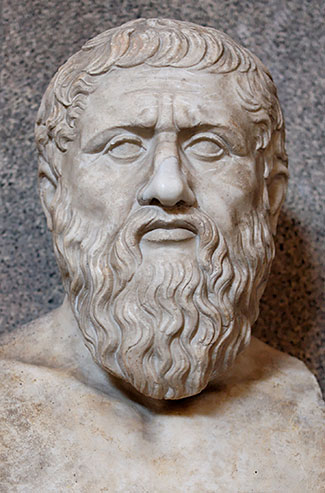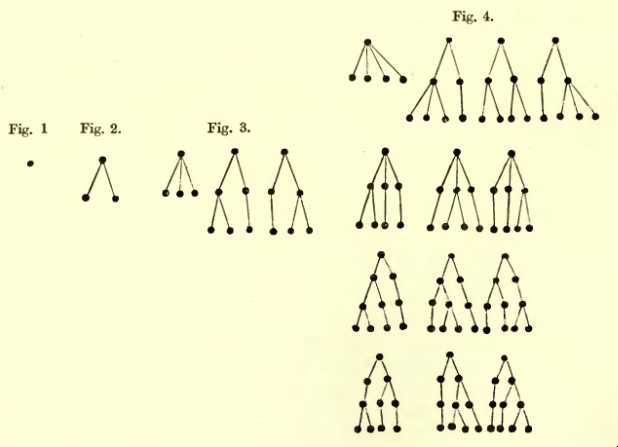Insults have lately been making headline news. Last year, the world witnessed an attack on the offices of the French satirical newspaper Charlie Hebdo.
The post How would the ancient Stoics have dealt with hate speech? appeared first on OUPblog.
Insults have lately been making headline news. Last year, the world witnessed an attack on the offices of the French satirical newspaper Charlie Hebdo.
The post How would the ancient Stoics have dealt with hate speech? appeared first on OUPblog.
Regius was a professor of medicine at the University of Utrecht. He was much taken with the views he had read in the scientific essays accompanying Descartes’s Discours de la méthode (1637), and was one of the first to introduce Descartes’s new mechanistic account of the material world into the Dutch academy.
The post Cartesian plasticity: The curious case of Henricus Regius appeared first on OUPblog.
Among the world’s most widely studied thinkers, Aristotle established systematic logic and helped to progress scientific investigation in fields as diverse as biology and political theory. But how much do you really know about this ancient philosopher?
The post How well do you know Aristotle? [quiz] appeared first on OUPblog.
The traditional view puts forward the idea that the vast majority of what there is in the universe is mindless. Panpsychism however claims that mental features are ubiquitous in the cosmos.
The post Is the mind just an accident of the universe? appeared first on OUPblog.
Among the world’s most widely studied thinkers, Aristotle established systematic logic and helped to progress scientific investigation in fields as diverse as biology and political theory. His thought became dominant during the medieval period in both the Islamic and the Christian worlds, and has continued to play an important role in fields such as philosophical psychology, aesthetics, and rhetoric.
The post Philosopher of the month: Aristotle appeared first on OUPblog.
This August, the OUP Philosophy team honors René Descartes (1596–1650) as their Philosopher of the Month. Called “The Father of Modern Philosophy” by Hegel, Descartes led the seventeenth-century European intellectual revolution which laid down the philosophical foundations for the modern scientific age.
The post How much do you know about René Descartes? [quiz] appeared first on OUPblog.
An astronomer, mathematician, philosopher, and active public figure, Hypatia played a leading role in Alexandrian civic affairs. Her public lectures were popular, and her technical contributions to geometry, astronomy, number theory, and philosophy made Hypatia a highly regarded teacher and scholar.
The post How much do you know about Hypatia? [quiz] appeared first on OUPblog.
This May, the OUP Philosophy team honors Thomas Hobbes (April 5, 1588 – December 4, 1679) as their Philosopher of the Month. Hobbes is remembered as the author of one of the greatest of books on political philosophy ever written, Leviathan, in which he argued with a precision reached by few other thinkers.
The post How well do you know Thomas Hobbes? [quiz] appeared first on OUPblog.
This January, the OUP Philosophy team has chosen David Hume as their Philosopher of the Month. Born in Edinburgh, Hume is considered a founding figure of empiricism and the most significant philosopher of the Scottish Enlightenment. With its strong critique of contemporary metaphysics, Hume’s 'Treatise of Human Nature' (1739–40) cleared the way for a genuinely empirical account of human understanding.
The post How well do you know David Hume? [quiz] appeared first on OUPblog.
The OUP Philosophy team have selected Plato (c. 429–c. 347 BC) as their February Philosopher of the Month. After his death in 347 BC, educators at the Academy continued teaching Plato’s works into the Roman era. Today he is perhaps the most widely studied philosopher of all time.
The post How well do you know Plato? [quiz] appeared first on OUPblog.
"East is East and West is West, and ne’er the twain shall meet." Well, no. Kipling got it wrong. The East and the West have been meeting for a long time. For most of the last few hundred years, the traffic has been mainly one way. The West has had a major impact on the East. India felt the full force of British imperialism with the British East India Company and the British Raj.
The post Philosophie sans frontières appeared first on OUPblog.
If you go into a mathematics class of any university, it’s unlikely that you will find students reading Euclid. If you go into any physics class, it’s unlikely you’ll find students reading Newton. If you go into any economics class, you probably won’t find students reading Keynes. But if you go a philosophy class, it is not unusual to find students reading Plato, Kant, or Wittgenstein. Why? Cynics might say that all this shows is that there is no progress in philosophy. We are still thrashing around in the same morass that we have been thrashing around in for over 2,000 years. No one who understands the situation would be of this view, however.
So why are we still reading the great dead philosophers? Part of the answer is that the history of philosophy is interesting in its own right. It is fascinating, for example, to see how the early Christian philosophers molded the ideas of Plato and Aristotle to the service of their new religion. But that is equally true of the history of mathematics, physics, and economics. There has to be more to it than that—and of course there is.

Plato, Museo Pio-Clementino, Vatican
Great philosophical writings have such depth and profundity that each generation can go back and read them with new eyes, see new things in them, apply them in different ways. So we study the history of philosophy that we may do philosophy.
One of my friends said that he regards the history of philosophy as rather like a text book of chess openings. Just as it is part of being a good chess player to know the openings, it is part of being a good philosopher to know standard views and arguments, so that they can pick them up and run with them.
There is a lot of truth in this analogy, but it sells the history of philosophy short as well. Chess is pursued within a fixed and determinate set of rules. These cannot be changed. But part of good philosophy (like good art) involves breaking the rules. Past philosophers may have played by various sets of rule; but sometimes we can see their projects and ideas can fruitfully (perhaps more fruitfully) be articulated in different frameworks—perhaps frameworks of which they could have had no idea—and so which can plumb their ideas to depths of which they were not aware.
Such is my view anyway. It is certainly one that I try to put into practice in my own teaching and writing. I find that using the tools of modern formal logic is a particularly fruitful way of doing this. Let me give a couple of examples.
One debate in contemporary metaphysics concerns how the parts of an object cooperate to produce the unity which they constitute. The problem was put very much on the agenda by the great 19th century German philosopher and logician Gottlob Frege. Consider the thought that Pheidippides runs. This has two parts, Pheidippides and runs. But the thought is not simply a list, <Pheidippides, runs>. Somehow, the two parts join together. But how? Frege’s answer (we do not need to go in the details) ran into apparently insuperable problems.
Aristotle went part of the way to solving the problem over two millenia ago. He suggested that there must be something which joins the parts together, the form (morphe), F, of the proposition. But that can be only a start, as a number of the Medieval European philosophers noted. For <Pheidippides, F, runs> seems just as much a list as our original one, so there has to be something which joins all these things together—and we are off on a vicious infinite regress.
The regress is broken if F is actually identical with Pheidippides and runs. For then nothing is required to join F and Pheidippides: they are the same. Similarly for F and runs. But Pheidippides and runs are obviously not identical. So identity is not, as logicians say, transitive. You can have a=b and b=c without a=c. It is not clear that this is even a coherent possibility. Yet it is, as modern techniques in a branch of logic called paraconsistent logic can be used to show. I spare you the details.
A quite different problem concerns the topic in modern metaphysics called grounding. Some things depend for their existence on others. Thus, a chair depends for its existence on the molecules which are its parts; these, in turn, depend for their existence on the atoms which are their parts; and so on.
It contemporary debates, it is standardly assumed that this process must ground out in some fundamental bedrock of reality. That idea was attacked by the great Buddhist philosopher Nāgārjuna (c. 2c CE), with a swathe of arguments. Ontological dependence never terminates: everything depends on other things. Again, it is not clear, Nāgārjuna’s arguments notwithstanding, that the idea is coherent. If everything depends on other things, we have an obvious regress; and, it might well be thought, the regress is vicious. In fact, it is not. It can be shown to be coherent by a mathematical model employing mathematical structures called trees, all of whose branches may be infinitely long. Again, I spare you the details.

Of course, in explaining my two examples, I have slid over many important complexities and subtleties. However, they at least illustrate how the history of philosophy provides a mine of ideas. The ideas are by no means dead. They have potentials which only more recent developments—in the case of my examples, in contemporary logic and mathematics—can actualize. Those who know only the present of philosophy, and not the past, will never, of course, see this. That is why philosophers study the history of philosophy.
Graham Priest was educated at St. John’s College, Cambridge, and the London School of Economics. He has held professorial positions at a number of universities in Australia, the UK, and the USA. He is well known for his work on non-classical logic, and its application to metaphysics and the history of philosophy. He is author of One: Being an Investigation into the Unity of Reality and of its Parts, including the Singular Object which is Nothingness.
Subscribe to the OUPblog via email or RSS.
Subscribe to only philosophy articles on the OUPblog via email or RSS.
Images: Bust of Plato, Public Domain via Wikimedia Commons. Image of a graph as mathematical structure showing all trees with 1, 2, 3, or 4 leaves, Public Domain via Wikimedia Commons.
The post Philosophy and its history appeared first on OUPblog.